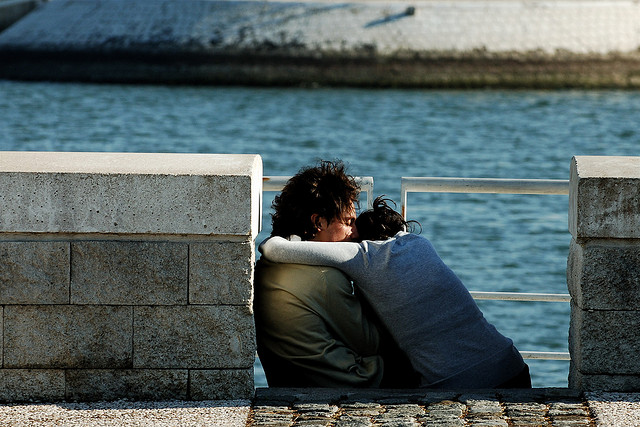My future husband walked in front of me, his right toes slightly turning in.
The outer edge of his black polished shoe brushed against the cement. Everything was back to normal, according to him, except for his right leg that was now heavier than his left.
I was 20, he was 23, and he had a brain injury.
The injury shifted our roles from lovers to patient and caregiver. In our new roles, that fiery, early excitement and sexual tension was replaced with tenderness and concern. We lived, in our first year, what some couples experience after 40 years of marriage—if ever.
I learned, while watching him and as fear and uncertainty started to well up in my being, the power of compassion and understanding. Where there was fear or uncertainty, I brought awareness to these feelings and I addressed these feelings with empathy.
Often he asked me to walk behind him and chart his progress according to the lift of his right leg. I would walk and tell him he was doing great, but sometimes I would just stop and watch. Occasionally I shook my head in disbelief. But always, I said to myself:
Put yourself in his shoes.
Put yourself in his struggle.
Put yourself in his suffering.
I remembered the quote by Thich Nhat Hanh, “Without understanding, love is an impossible thing.”
My idea of love was redefined. Love was not a feeling but a choice. Passion and lust and longing and desire were feelings. Love was a choice to stay by each other’s side every day, not for martyrdom, not for praise, but for the mere fact that this adventure would be an opportunity to witness the other’s life—the good, the bad, the bittersweet.
I watched him, day after day, in these very early stages of our life together, fight. Fight the battle against his body and the battle against time. I also saw his will to live, even in the darkest moments. I witnessed the miracle of mind over matter. I witnessed his deep-rooted faith and how at the end of many hard days and discouraging doctor appointments, he would say, I trust God has a plan.
This started a long journey for us. Both of us faced our own mortality, which is typical when dealing with trauma, and both of us felt we had so much to do in so little time. We seized each day and constantly reminded each other that everything we had was temporarily on loan from the higher power.
We tried our best to understand each other’s needs, path, pain, desires and plans. We often found ourselves on opposite spectrums—I in need of extra space and independence and he in need of someone to lean on.
We would be conventional some days, some months, and then we would challenge each other to shake things us, take a huge risk and live the day as if it were our last.
Whatever we would do, we would try our best to understand one another.
And that was our way of loving.
Relephant Read:
How Meditation Helped me Heal from a Brain Injury.
Author: Ashley Martinez
Editor: Catherine Monkman
Photo: Pedro Ribeiro Simões/Flickr











Read 0 comments and reply